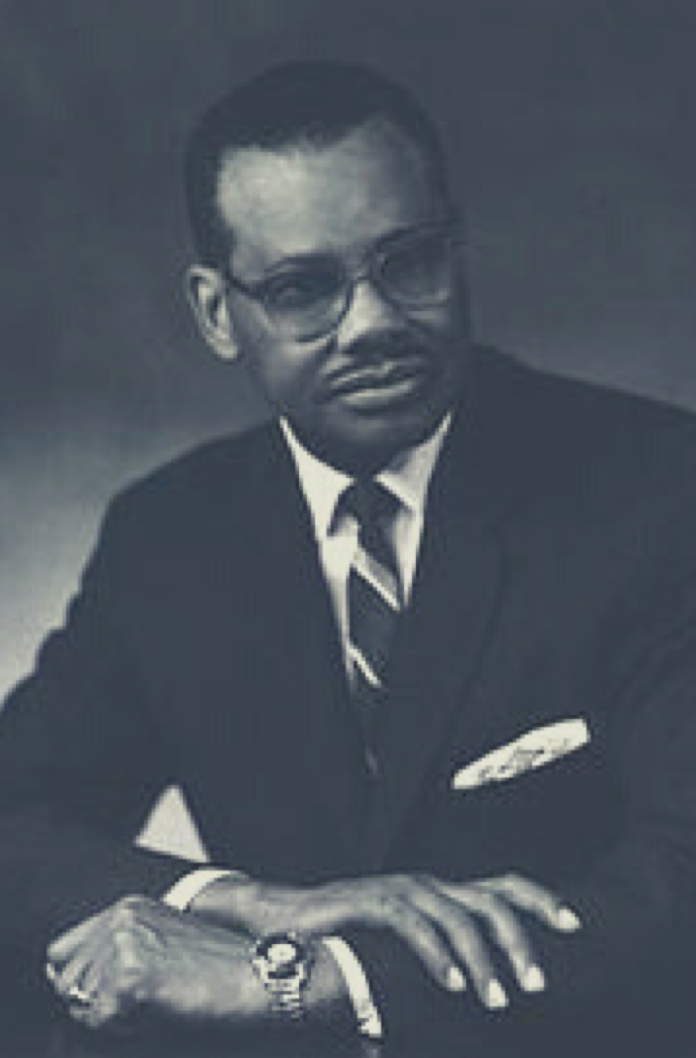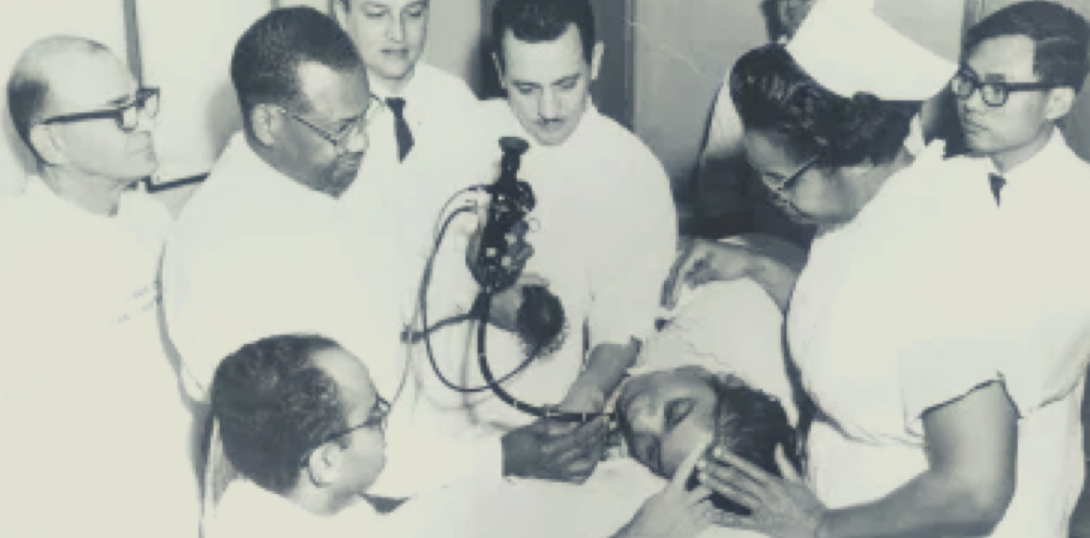Leonidas Harris Berry, MD
In 1955, Dr. Berry invented the Eder-Berry biopsy attachment for the Eder-Palmer gastroscope. The attachment made the gastroscope the first direct-vision suction instrument used for taking tissue samples during gastroscopic examination.
Leonidas Harris Berry, MD Heading link

The Department of Medicine Inclusion Council honors and celebrates the life of Leonidas Harris Berry, M.D. (July 20, 1902 – December 4, 1995). Dr. Berry was a physician in gastroscopy and endoscopy. He served as the president of the National Medical Association from 1965 to 1966. Berry received a M.D. degree from the Rush Medical College of the University of Chicago in 1929. In 1933, he also received a M.S. degree in Pathology from the University of Illinois Medical School. He briefly worked for the Freedman’s Hospital (now Howard University Hospital) in Washington, D.C. and went on to secure a position at Cook County Hospital in Chicago, where he specialized in gastroenterology.
Leonidas Harris Berry, MD Heading link

Dr. Berry with residents and postgraduate students, 1970. Photo from National Institutes of Health.
Berry was the first black doctor on staff at Michael Reese Hospital in Chicago, in 1946, but had to fight for an attending position there for years. He was finally named to the attending staff in 1963 and remained a senior attending physician for the rest of his medical career. In the 1950s, Berry chaired a Chicago commission working to make hospitals more inclusive for black physicians and increase facilities in underserved parts of the city. Dr. Berry established the Council for Biomedical Careers, which provided community education on topics such as nursing, medical technology, pharmacy, and dentistry. His intentions were to motivate other black men to enter into bio-medical careers. As president of the Cook County Physicians’ Association, he developed the “Berry Plan” a citywide plan for treating young narcotics addicts. In addition to his long and distinguished medical career, he was active in teaching, writing, and community public service, including work in civil rights, regarding the lack of adequate care for African Americans.